
Journal of Aerospace Technology and Management
Scope & Guideline
Fostering Global Collaboration in Aerospace Technologies.
Introduction
Aims and Scopes
- Aerospace Engineering Innovations:
The journal publishes research on cutting-edge engineering techniques, materials, and technologies for aircraft and spacecraft design, including topics like aerodynamics, propulsion systems, and structural analysis. - Automation and Control Systems:
A significant focus is on the development and control of automation systems in aerospace applications, including UAVs and eVTOLs, emphasizing algorithms, modeling, and simulation. - Aerospace Management and Policy:
The journal explores the management aspects of aerospace technology, including policy implications, strategic management, and innovation in aerospace industries, particularly in developing countries. - Sustainability and Environmental Impact:
Research on sustainable practices in aerospace, including energy-efficient designs, alternative fuels, and the environmental impact of aerospace activities is a key area of focus. - Interdisciplinary Approaches:
The journal encourages interdisciplinary research, integrating fields such as artificial intelligence, materials science, and data analytics into aerospace technology and management.
Trending and Emerging
- Electric and Hybrid Aerospace Vehicles:
Research on electric vertical takeoff and landing (eVTOL) and hybrid propulsion systems is on the rise, driven by the demand for sustainable aviation solutions and advancements in battery technology. - Artificial Intelligence Applications:
The integration of artificial intelligence in aerospace, particularly in areas like predictive maintenance, autonomous flight systems, and operational efficiency, is becoming a prominent theme in recent studies. - Satellite Technology and Space Exploration:
With the growth of the satellite industry and interest in space exploration, research focusing on satellite design, launch strategies, and orbital mechanics is increasingly prevalent. - Human Factors and Safety in Aviation:
There is a growing emphasis on human factors in aviation, including pilot training, automation effects, and safety management systems, reflecting the need for improved operational safety in complex aerospace environments. - Sustainable Materials and Manufacturing Processes:
Emerging themes in sustainable materials for aerospace applications and innovative manufacturing processes, such as additive manufacturing, are gaining attention as the industry seeks to reduce its environmental footprint.
Declining or Waning
- Traditional Aerodynamics Studies:
Research focusing solely on classical aerodynamics without integrating modern computational techniques or multidisciplinary approaches is appearing less frequently, as the field evolves towards more complex simulations and real-world applications. - Conventional Propulsion Systems:
There is a noticeable decrease in studies centered on traditional jet and rocket propulsion systems, reflecting a broader industry shift towards electric and hybrid propulsion technologies. - Static Safety Analysis:
Static analyses of flight safety and certification processes are being overshadowed by dynamic and real-time safety assessments, leading to a decline in papers focused solely on traditional safety methodologies. - Basic UAV Applications:
Papers discussing basic applications of UAVs without innovative contributions or advanced technology integration have decreased, as the field moves toward more sophisticated uses of drone technology.
Similar Journals

AEROSPACE AMERICA
Pioneering Insights for Tomorrow's Aerospace LeadersAerospace America, published by the American Institute of Aeronautics and Astronautics, stands as a crucial platform within the field of aerospace engineering. With over 30 years of dedication to advancing aerospace knowledge, the journal provides a comprehensive exploration of topics ranging from cutting-edge aerospace technology to aviation policy and industry developments. While it currently resides in the fourth quartile of the Scopus rankings for aerospace engineering, the journal aims to enhance its visibility and impact among researchers, professionals, and students. Access to its content is traditionally through institutional subscriptions, aligning with its mission to foster informed discussions and innovations in aerospace. As professionals and academics navigate the evolving landscape of aeronautics, Aerospace America remains a pivotal resource for those committed to the future of aerospace exploration and technology.
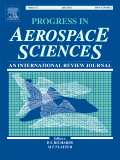
PROGRESS IN AEROSPACE SCIENCES
Exploring the frontiers of aerospace engineering and technology.PROGRESS IN AEROSPACE SCIENCES is a prestigious journal published by PERGAMON-ELSEVIER SCIENCE LTD, recognized as a leading platform in the field of aerospace engineering, mechanical engineering, and mechanics of materials. With an impressive history dating back to 1961, the journal covers a wide spectrum of topics pivotal to advancing aerospace technology and innovation. Its recent ranking as Q1 in multiple engineering categories underscores its significance, ranking #1 in Aerospace Engineering and placing within the top 20 percentile in both Mechanical Engineering and Mechanics of Materials, according to Scopus assessments. Researchers, professionals, and students looking to engage with high-impact research will find PROGRESS IN AEROSPACE SCIENCES an invaluable resource, offering insights into cutting-edge developments and methodologies. Although it does not operate under an open-access model, the journal upholds rigorous peer-review standards, ensuring that the published content meets the highest academic integrity. Situated in the United Kingdom, it plays a critical role in fostering international collaboration and knowledge-sharing in the aerospace sector.
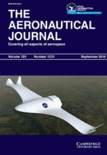
AERONAUTICAL JOURNAL
Exploring the frontiers of flight and technology.Aeronautical Journal, published by Cambridge University Press, is a premier scholarly journal dedicated to advancing the field of aerospace engineering. With a notable impact factor, this journal holds a strong position in the academic community, ranked #53 out of 153 in the Scopus category of Aerospace Engineering, placing it in the 65th percentile. The journal has been providing a platform for groundbreaking research since its inception in 1969, and continues to be a vital resource for researchers, professionals, and students involved in aeronautics. As a Q2 journal in the 2023 Aerospace Engineering category, it offers high-quality articles that cover a range of topics within the discipline, contributing to the ongoing discourse and innovation in aerospace technologies. Although not an open-access journal, it remains accessible to a vast readership through institutional subscriptions and partnerships. The Aeronautical Journal is a crucial publication for those seeking to stay at the forefront of aerospace research and development.

Aerospace is a premier open-access journal published by MDPI, established in 2014 and dedicated to the dynamic field of aerospace engineering. With an impressive Q2 ranking in the 2023 category of Aerospace Engineering, this journal is a vital resource for researchers, professionals, and students interested in advancements and innovations in aerodynamics, avionics, propulsion, and more. Operating from Switzerland, Aerospace provides a platform for the dissemination of high-quality research articles and reviews, contributing to the ongoing dialogue in the aerospace community. This journal not only enhances visibility through its open access model but also ensures that critical knowledge is freely available, fostering collaborative efforts and inspiring the next generation of aerospace engineers. With a Scopus ranking of #60 out of 153 in the Aerospace Engineering category, it plays a significant role in shaping the future of aviation and space exploration.
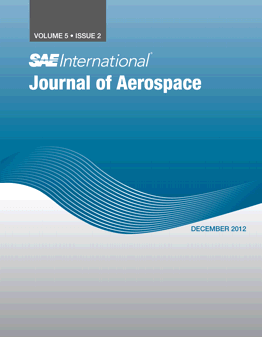
SAE International Journal of Aerospace
Elevating Aerospace Innovation.The SAE International Journal of Aerospace, published by SAE International, serves as a critical platform for innovative research and advancements within the field of aerospace engineering. With an ISSN of 1946-3855 and an E-ISSN of 1946-3901, this esteemed journal contributes significantly to the body of knowledge in the aerospace sector, boasting a convergence span from 2008 to 2024. While currently categorized in Q4 of Aerospace Engineering, the journal is dedicated to fostering emerging ideas, technologies, and methodologies that could eventually elevate its standing. Although it does not offer open access options, the journal ensures wide dissemination of its well-curated articles to aid researchers, professionals, and students in staying abreast of the latest developments and trends. Given its distinct focus and commitment to the aerospace community, the SAE International Journal of Aerospace plays an essential role in bridging theory and practice, making it a valuable resource for those within this vital and evolving field.
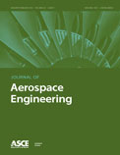
JOURNAL OF AEROSPACE ENGINEERING
Exploring the frontiers of aerospace engineering excellence.JOURNAL OF AEROSPACE ENGINEERING, published by the American Society of Civil Engineers (ASCE), is a premier scholarly journal that serves as an essential resource for engineers and researchers in the aerospace engineering domain. With an ISSN of 0893-1321 and an E-ISSN of 1943-5525, this journal has been dedicated to advancing knowledge since its inception in 1988 and will continue to do so through to 2024. The journal is categorized in the Q2 quartile across multiple engineering disciplines, including Aerospace Engineering, Civil and Structural Engineering, Materials Science, and Mechanical Engineering, reflecting its reputable standing in the community. The impact factor speaks to its influence and relevance, making it a critical reference for ongoing research and innovations. Although this journal does not offer open access, it ensures that its content is comprehensive, engaging, and peer-reviewed, targeting a diverse audience of professionals, academics, and students involved in the fields of aerospace engineering and related disciplines. The journal actively contributes to shaping future engineering practices, showcasing cutting-edge research and fostering collaboration among discipline experts.

Journal of Aeronautics Astronautics and Aviation
Empowering the Next Generation of Aerospace ProfessionalsJournal of Aeronautics Astronautics and Aviation, published by the Aeronautical & Astronautical Society Republic of China, is a premier scholarly journal dedicated to advancing knowledge in the dynamic fields of aerospace engineering and space sciences. Operating under the ISSN 1990-7710, this journal plays a pivotal role in disseminating innovative research and practice-oriented studies that address both theoretical and applicative aspects of aeronautics and astronautics. With an impressive history spanning from 2006 to 2024, the journal has established itself as a valuable resource for researchers, professionals, and students alike, featuring contributions that reflect the latest developments and trends within the industry. In the latest rankings, it holds a Q3 classification in Aerospace Engineering and Q4 in Space and Planetary Science, indicating its growing influence despite its niche scope. With an open access model that facilitates widespread readership, the Journal of Aeronautics Astronautics and Aviation strives to foster collaboration and knowledge sharing in these ever-evolving scientific domains.
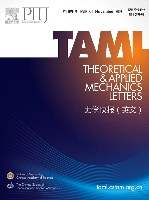
Theoretical and Applied Mechanics Letters
Advancing Engineering Knowledge Through Theory and PracticeTheoretical and Applied Mechanics Letters, published by ELSEVIER, stands as a premier journal in the field of engineering and applied mechanics, recognized for its rigorous peer-reviewed articles that advance theoretical and practical frameworks. With an impressive open access policy established in 2015, the journal enhances global accessibility to cutting-edge research across a range of disciplines including Aerospace, Civil, Mechanical, and Biomedical Engineering, along with Computational Mechanics and Ocean Engineering. The journal boasts an enviable position in the academic landscape, achieving a Q1 rank in several categories as of 2023, while being cited among the top percentiles in Scopus Ranks, specifically ranking #25 in Aerospace Engineering and #15 in Computational Mechanics. The journal aims to foster innovation by providing a platform for scholars and professionals to disseminate their findings, thereby bridging the gap between theoretical research and practical applications. By promoting a diverse range of topics and methodologies, Theoretical and Applied Mechanics Letters not only contributes to the advancement of engineering disciplines but also supports the global academic community in exploring sustainable and impactful engineering solutions.

Advances in Aircraft and Spacecraft Science
Connecting Scholars to Shape the Future of AerospaceAdvances in Aircraft and Spacecraft Science is a distinguished journal published by TECHNO-PRESS, focusing on the rapidly evolving fields of aerospace engineering and fluid dynamics. With an ISSN of 2287-528X and an E-ISSN of 2287-5271, this journal is an invaluable resource for researchers, professionals, and students dedicated to advancing knowledge in aircraft and spacecraft technologies. Established in 2014, the journal is committed to disseminating high-quality research findings and innovative methodologies, ensuring that cutting-edge studies can be accessed globally. Despite its current position in the Q4 category for both aerospace engineering and fluid flow transfer processes, it continues to carve a niche in the academic landscape, with Scopus rankings highlighting its contribution to these fields. Operating from South Korea, Advances in Aircraft and Spacecraft Science aims to inspire collaboration and knowledge-sharing among scholars, fostering advancements that drive the aerospace industry forward.

International Journal of Aviation Aeronautics and Aerospace
Pioneering Insights in Aerospace Engineering and TechnologyInternational Journal of Aviation Aeronautics and Aerospace, published by Embry-Riddle Aeronautical University, serves as a pivotal platform for the dissemination of innovative research in the fields of aerospace engineering, civil and structural engineering, and safety, risk, reliability, and quality. With an ISSN of 2374-6793 and designated as an open access journal since 2014, it enables unhindered global access to its scholarly content, fostering collaboration among researchers, professionals, and students in the aviation sector. The journal's presence spans from 2014 to 2024 and is recognized within the Q3 category across multiple engineering domains according to recent metrics. Despite its emerging status, it holds respectable rankings in Scopus, demonstrating its relevance and contribution to the academic community, particularly in dynamic engineering sectors. It is an essential resource for anyone looking to enhance their understanding of advancements and challenges in aviation and aerospace solutions.